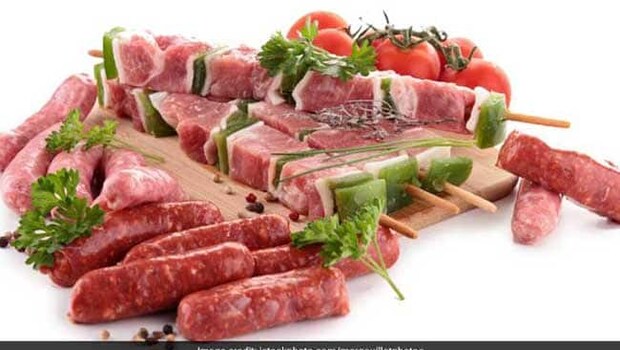Let's start with understanding what mock meat is. Mock meat or plant-based meat is a food product that is derived from plants or plant-related products. These are nothing but meat analogues or meat substitutes that look, smell, and taste like meat. Technological breakthroughs have allowed manufacturers to faithfully replicate the texture and consistency of meat in plant-based alternatives. Mock meat that is made entirely from plant derivatives have become the choice of food for vegans. However, plant-based meat that contains milk or egg whites cannot be grouped under vegan food.
There's a wide range of plant-based meat products available. Just recently, there has been an explosion in the category of plant-based meat products. Nuggets, burger patties, sausages, kebabs and more - there is a great variety of 100% vegetarian food products. They range from snacks to meals that tick all the boxes of authentic non-vegetarian food.

(Also read: 2 Servings Of Plant-Based Meat A Day May Help Lower Heart-Related Risks - Experts Reveal)
With the rise of social media influencers, fitness enthusiasts and climate crusaders, mock meat has found a home in the hearts of many individuals across the world. In the past few years, plant-based meat analogues have penetrated different cross-sections of society and garnered raging popularity, especially amongst millennials and Gen Z.
Mock Meat Vs. Real Meat:
On the surface, it gets difficult to identify any remarkable differences between mock and real meat. It is because there are many similarities between the two.
For starters, plant-based meat is treated in such a way that the texture, consistency, flavour, and aroma are identical to that of real meat. If you were to taste plant-based meat and real meat at the same time, you couldn't help but realize the former tastes just like the latter.
However, the two differ in some key aspects. For instance, the ingredients for mock meat are exclusively sourced from plants. Soy, pea, mushroom, quinoa, jackfruit and other plant produce are used to make up the protein content and create the bulk of plant-based meat. Similarly, mock meat manufacturers often use a variety of plant products to add texture, taste, colour and aroma to their products. Beet juice, coconut oil, gluten and spices are commonly used to place the product on the same plane as real meat.
Also, mock meat contains no cholesterol, thereby making it a healthier alternative. Animal meat naturally contains cholesterol and is also linked to high risks in heart health.

(Also read: Study Says Most Meat-Eaters Admit Veganism Is A More Ethical Dietary Practice)
Health Benefits Of Mock Meat:
Our definition of a healthy lifestyle has changed over the years. Be it social media, Covid-19, or stressful work-life environment, there has been a major shift in what we think constitutes a healthy lifestyle. The simplest way to adopt healthy measures is to eat your way to it.
Since mock meat is derived from plants, they are naturally abundant in vegetable protein and fibre and certainly qualify as healthier alternatives.
Plant-based diet generally is good for health where one doesn't have to worry about cholesterol or hormones that come along with meat.
Process Of Making Mock Meat (Steps And Ingredients):
A crucial aspect of creating mock meat is to replicate the texture and taste of actual meat. Since plant-based proteins have a different texture, they must be treated to get the right consistency. For instance, soy protein is aggregated and globular in structure as compared to more fibrous meat protein.
To get the identical texture, soy protein needs to be denatured, followed by the mixture being run through an extruder which reshapes the entire molecular structure. Also, to resemble the composition of meat, plant protein is mixed with binding agents and fats. This ensures that the product holds together and absorbs moisture which creates a meat-like texture. The meat-like flavour is achieved by adding ingredients extracted from plant sources. The main objective is to replicate the tender, stretchy and chewy nature, and taste of meat products.
Plant-based meat differs from real meat in one major aspect- its impact on the environment. The consequence of raising livestock for the purpose of meat production is highly disastrous for the climate. Large tracts of land are cleared of vegetation to create pastures for grazing, adding to the strain of an already fragile ecosystem. This is the reason why mock meat is steadily gaining popularity amongst many individuals who opt for eco-friendly and sustainable living.
Author Bio: Ms. Ruth Renita is the co-founder and product development head at Shaka Harry
Disclaimer: The opinions expressed within this article are the personal opinions of the author. NDTV is not responsible for the accuracy, completeness, suitability, or validity of any information on this article. All information is provided on an as-is basis. The information, facts or opinions appearing in the article do not reflect the views of NDTV and NDTV does not assume any responsibility or liability for the same.






